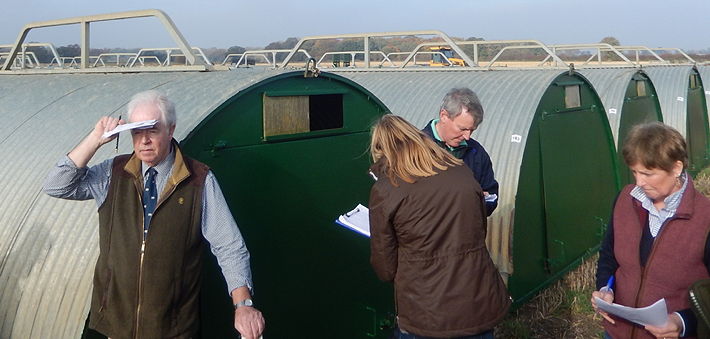Although it was good to see the latest SPP rise by 2.53p to stand at a new record high of 183.10p, a glance at the other side of the profit & loss account paints an ongoing grim picture for the future of the pig industry, especially as far as the Government’s “Food Strategy” is concerned!
Over the water, the influential German producer price has remained static for the past five weeks at an even lower price than our producers can compete with, which is €1.80, converting to 152p/kg in real money, and explains why even cheaper imported pig meat continues to head this way with the Government making it clear that they have no intention of helping pig producers in the months and years ahead.
The latest UK weekly contribution prices have mainly stood on between 173p at the bottom and 190p/kg at the top, but none of these prices are going to get producers anywhere near out of trouble in the meantime.
This is further underlined by the spot bacon market, which is as low as 160p/kg and with more pigs being rolled and no signs of returning to profit, especially while the ongoing warfare in Ukraine continues, which at the moment looks likely to be the case.
Cull sows have gone up by a mere 1p/kg after dropping by 16p/kg over the previous two weeks due to a falling Pound against the Euro which traded today worth 80p. Most cull sow quotes have been between 48p and 52p/kg at a time when larger numbers of culls are heading for the exit mainly due to unsustainable feed costs.
Weaner values have continued to benefit from the recent rise in the SPP and for those sellers who have their pig contracts safely locked away, reports are indicating that RSPCA Assured 7kg piglets have been traded in some cases between £44 – £46/head.
But a much colder wind continues to blow through the spot market, where due to buyers concerns over profitability (or otherwise), finishing pigs at current production costs remain completely out of step with reality as far as the pig industry is concerned and they are understandably taking a very cautious view before making any commitments to buy weaners, except at heavily discounted prices and in some cases are almost giving them away.
However, the plight of the industry remains focused on feed costs with feed wheat traded on the futures market for July delivery at £298/t and for longer months deals have been agreed at £310/t. Falls in feed wheat prices traded on a spot ex farm basis have seen the latest weekly average of £283.80/t which is a mere £2/t below the last week’s price.
Feed barley prices are almost catching up with wheat with September delivery deals agreed at £292/t on a delivered basis.
The same situation applies to some extent as far as proteins are concerned which Hipro soya for July – October at £479/t and longer months are still painting an expensive picture with May – October 2023 at £446/t.
Rapemeal prices also remain much the same with July delivery quoted at £320/t.
And finally, there is much more bad news for the industry to digest in the form of the Government’s so called Food Strategy which they describe as a clear milestone for domestic production, although some observers have been quick to point out that this should really be described as a clear millstone for domestic pig production.
According to recent press releases this huge swing in agricultural production systems has been served up by restaurateur Henry Dimbleby and now explains why previously the pig industry had received virtually no actual support. In brief, the proposals are that we would produce double the amount of fruit and vegetable whereas grain production would be cut by 50% with a phasing out of chemical inputs and less land being used for intensive crop production.
Even worse from the pig farmer’s point of view, if the UK were to switch to sustainable farming methods:
• We would produce double the amount of fruit and vegetables.
• Grain production would halve due to a phase out of chemical inputs and less land being used for
intensive crop production.
• Much less grain would be fed to livestock and intensive livestock production would be phased out, resulting in a 75% decline in pork and chicken production.
• We would produce double the amount of pulses (peas and beans).
• Beef and lamb, reared mainly on grass, would continue to be produced at similar quantities as today and would become our staple meat.
For those of you checking your calendar the date of this announcement was not the 1st April, but the huge gap in our production system as far as pork is concerned will no doubt be readily taken up by our former partners in the EU!
On this occasion we will be asking the last pig farmer to leave the industry to turn out all the lights on his way home.




